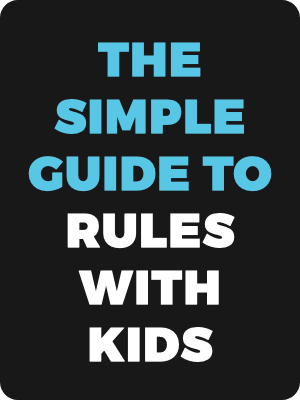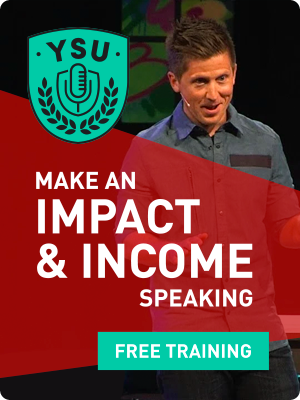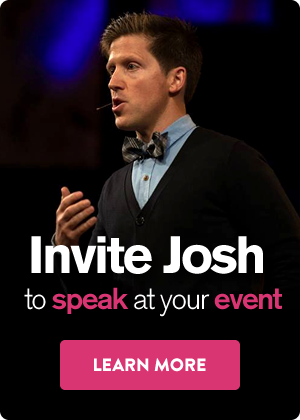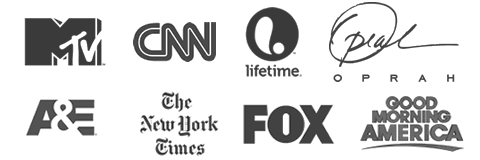18 Books Every Teen Should Read Before They Turn 18
Here’s a list of 18 books that I think are not only helpful but important for today’s teenagers. This is NOT a list of the 18 best books of all time. These are simply 18 books that contain powerful stories, practical concepts, and push for critical thinking.
RELATED POSTS:
- 12 Books Every Kid Should Read Before They’re 12
- 11 Essential Books Every Parent Should Read
- The Book Report Template I Use With My Kids
1. I Know Why the Caged Bird Sings by Maya Angelou
Eventually, every teen will have to come to terms with suffering and loneliness. This book is a testament to how to approach even the deepest trials of life. Angelou’s memoir of her childhood is heartbreaking and tragic, but the strength of her spirit, her unabated optimism and hope, and the incredible poetry of her words help readers make sense of life, even at times when that seems impossible. Maya shows us that it’s possible to nurture something inside that can glow brightly, even in the darkest night.
2. The War of Art by Steven Pressfield
This book highlights a very uncomfortable truth about life: if you want to create something, you will face many, many roadblocks. Whether it’s naysayers, self-doubt, or laziness, there are loads of things that will keep us from doing what we long to do. Pressfield helps us easily and clearly identify the enemy of creativity, and like Sun Tzu, outlines a battle plan to conquer this internal foe. Think of it as tough love . . . for yourself. Whether or not your teen is traditionally dubbed “creative” this book will help them see that nothing good happens unless you master the toughest foe out there: yourself.
3. Do Hard Things by Alex and Brett Harris
The fact that the foreword to this book is written by Chuck Norris is only the second coolest thing about this book. Alex and Brett Harris, who themselves are teenagers, do a firm job of making the case that low expectations hurt teens and that high expectations push people to do more. The Harris boys explode the myth of adolescence and show that prior to the 20th century, a person was either an adult or a child. And they make a strong case that teenagers are capable of a whole lot more than society thinks. This book is challenging for teens. And adults, frankly.
4. Boundaries by Dr. Henry Cloud and Dr. John Townsend
One of the most important realities of life is that every person has limits and limitations. This book makes the case that if a person doesn’t set and establish and hold strong boundaries for themselves, then bad things will happen. Your teen must have physical boundaries (the wisdom to determine who may touch us and under what circumstances), mental boundaries (the freedom to express our own thoughts and opinions), and emotional boundaries (the ability to manage our own feelings and disengage from the manipulative emotions of others). There are adults who can’t do this. To have Cloud and Townsend help your teen understand and internalize these truths is beyond helpful.
5. Don’t Know Much About History by Kenneth C. Davis
History is important. But if taught wrong, history can be an absolute snooze-fest. But not here. With trademark humor and a super-engaging conversational style, Davis is the most interesting history teacher you’ve ever had. He explains important events and people in ways that make sense of even the most complicated moments in US History. After all, making sense of the past and learning from it might be the best way to prepare teens for the future.
6. To Kill a Mockingbird by Harper Lee
This is very nearly the perfect book for teenagers and a classic American novel. The novel’s themes of racial and social injustice are tough to watch unfold, but the story is told with such goodness (and warmth and humor) that it’s nearly universally loved. In fact, we don’t trust anyone who doesn’t love this book. And TKAMB is so powerfully written, that it can actually accomplish something incredible in its readers: it can build empathy for the “other.” And if there’s one thing teens need in today’s world, it’s more empathy.
7. How to Win Friends and Influence People by Dale Carnegie
In the new knowledge economy, one of the most important traits that employers are looking for is the ability to co-exist and work well in collaborative settings. This book, originally published in 1936, might seem dated, but its principles are increasingly important in our era. The book might seem a tad Machiavellian in its goal, but underneath it all are strong interpersonal communication techniques based on the idea that other people are far more frail and far more egocentric than we’d all like to admit. This book really can help your teen grow into a person who is winsome, kind, respectful, and savvy with other people.
8. The Total Money Makeover by Dave Ramsey
The average teen will spend nearly 3,772 hours in high school, during which time, most will spend exactly zero minutes learning about personal debt, credit card interest, compounded interest, mortgages, stocks and bonds, budgeting, and other crucial concepts of personal finance which will affect them nearly every day of their adult life. This seems almost criminal. Ramsey’s book on personal finances is one of the clearest and easy-to-understand guides to money and personal finances out there. Because how you handle your money matters.
9. The Catcher in the Rye by JD Salinger
Holden Caulfield is the literature’s first unreliable narrator, a desperately lonely young man broken to the core by the tragic, traumatic death of his beloved younger brother. His struggle – the angst that comes about from trying to figure out how to belong, be known, and be loved – is the story of every adolescent.
10. Essentialism by Greg McKeown
Do you ever feel busy but not productive? Essentialism shows you how to achieve the disciplined pursuit of less. Being an Essentialist is about a disciplined way of thinking. It means challenging the core assumption of ‘We can have it all’ and ‘I have to do everything’ and replacing it with the pursuit of ‘the right thing, in the right way, at the right time’. The pursuit of less allows us to regain control of our own choices so we can channel our time, energy, and effort into making the highest possible contribution toward the goals and activities that matter.
11. The Teen’s Guide to World Domination by Josh Shipp
Admittedly, this is my book. However, since it’s been praised by both teens and parents – I feel comfortable listing it here. How can teens make good decisions in the midst of demanding and confusing circumstances? I outline seven key “villains” that confront teens and how to defeat them. Intentionally packed with teen-friendly humor, you’ll find this to be a self-improvement book that your teen will actually want to read.
12. Mythology by Edith Hamilton
Fact: the stories of the Ancient Greeks, Romans, and Norse people are worth reading. And not just because they might help you score higher on your SATs. This simple anthology, which is often used as an introductory text in college classrooms, is a perfect collection. It’s like reading the Cliff Notes to a couple of thousand years of cultural stories. Dig in. Apollo, the god of poetry and literature, would want you to.
13. The 7-Habits of Highly Effective People by Stephen Covey
Covey bypasses sugary pop psychology and jumps into what he calls “Character Ethic” proven principles of fairness, integrity, honesty, and human dignity. You might not agree with everything in here, but it will give you a framework to talk about what it means to be successful, and the role of personal integrity in that journey.
14. Diary of a Young Girl by Anne Frank
It’s a rare gift to be able to look directly into the heart and mind of a teen, especially when that teen’s thoughts and feelings are as deep and thoughtful as Anne Frank. The book is a series of writings kept by Anne while she was in hiding for two years with her family during the Nazi occupation of the Netherlands. The diary reveals an endlessly interesting teenage girl and traces her development and maturity in the midst of almost unimaginable stress.
15. Where the Red Fern Grows by Wilson Rawls
Learning to deal with the trauma of death is a part of life. And no book teaches this bitter lesson more beautifully than this simple novella about an impoverished boy, Billy, growing up in squalor in the Ozark Mountains, who manages to buy two hunting dogs, Lil Ann and Old Dan. The loyalty and love of these dogs change the trajectory of Billy’s life forever. And if you think Old Yeller was heart-breaking, this book will wallop you. Is it better to have loved and lost? The answer is yes. A thousand times yes. Also, cats suck and dogs rule.
16. The Adventures of Huckleberry Finn by Mark Twain
In addition to being considered by literary critics to be one of the Great American Novels, this coming-of-age-in-the-pre-Civil-War-south story is a heck of a ride through time through the eyes of a precious 14-year-old Huck Finn. The language is racist and tough to read at times, but it’s a trip back into the pre-Civil-War south. Huck turns out to be a helpful guide, not only down the waters of the mighty Mississippi but also through the turbulent issues of race and personal identity that every teenager (even today) has to face.
17. Lord of the Flies by Sir William Golding
Although it might masquerade as a simple tale about some British schoolboys trapped without any adults on a deserted island, it’s actually a robust political theory about the role of government and individuals. At its core, it’s about why humans form civilizations – and why civilizations crumble.
18. Night by Elie Wiesel
The Holocaust is one of humanity’s darkest moments. After being liberated by American forces from the Nazi concentration and death camp of Buchenwald, Elie Wiesel didn’t talk or write about his experiences for a decade. He then wrote down just over 100 pages of fragmented narrative recounting his time in Auschwitz and Buchenwald with his father. The darkness contained in this book is unimaginable. Night transforms the Holocaust from a historical event to a religious experience.




